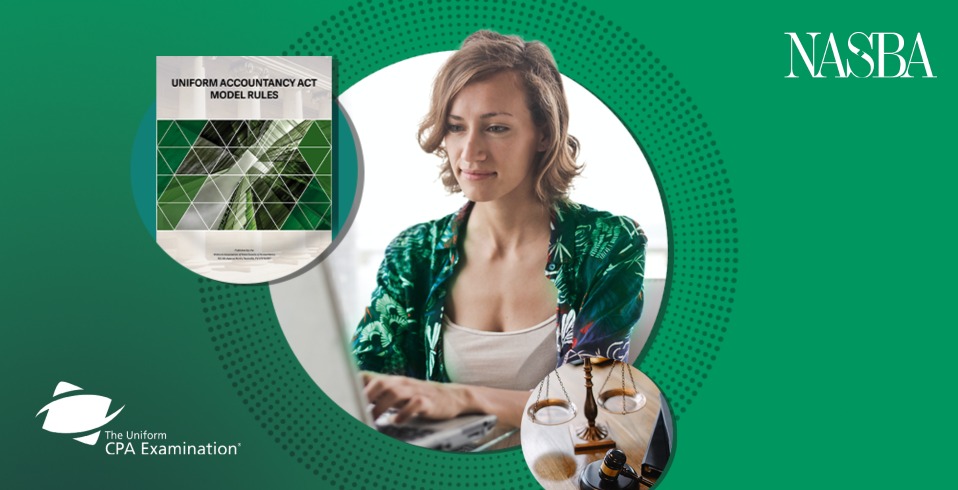SHARE:  The National Association of State Boards of Accountancy (NASBA) announces the adoption of an eagerly anticipated amendment to the Uniform Accountancy Act (UAA) Model Rules pertaining to the Uniform CPA Examination (Exam). On April 21, 2023, the NASBA Board of Directors voted to adopt an amendment to UAA Model Rule 5-7. The amendment increases the length of conditional credit from 18 months to 30 months, bases the calculation of conditional credit for Exam sections passed on the date that scores are released, and adds descriptive language to provide greater clarity for when Boards of Accountancy may extend conditional credit. The UAA Model Rules have no immediate effect on state board rules. As the membership organization of the 55 U.S. Boards of Accountancy, NASBA, through its Uniform Accountancy Act Committee, provides the Model Rules as recommendations to boards for adoption whereby uniform adoption is encouraged. As such, each individual board may consider the amendment to the Model Rule 5-7 and, if so choose, commence a process to change the rules at the state level. Current Exam candidates remain under existing rules until, if and when, the board to which they applied makes changes. The approved amendments cover the granting of credit requirements for sections passed on the Exam for those who wish to enter the CPA profession. The revised rule provides that once a candidate has successfully passed one section of the Exam, they will then be provided with a rolling 30-month period to pass the remaining three sections of the Exam. The exposure draft proposed a six-month extension of the credit period to 24 months, but based on further consideration and input, the NASBA Board of Directors elected to approve a 12-month extension to 30 months. “Providing an additional year of conditional credit to candidates for Exam sections passed provides more flexibility to those seeking licensure as a CPA. The additional time also provides greater latitude to firms and candidates as they negotiate the demands of today’s complex career environment,” said NASBA President and CEO Ken L. Bishop. In addition, recent revisions to the Exam indicate that score delays may occur when significant updates are made to Exam content and structure. The approved rule seeks to provide uniformity among jurisdictions on the timing of granting Exam credits, which also has the benefit of providing relief to candidates when such delays happen. “On behalf of the NASBA Board of Directors, we would like to thank the Uniform Accountancy Act Committee and the many stakeholders who provided valuable input to the rule making process,” said Richard N. Reisig, CPA, 2023-24 NASBA Chair. “We believe this amendment made to the UAA Model Rules will support the best interests of the candidates in their journey to entering the profession.” Over a 60-day comment period leading up to the adoption of the new rule, more than 850 respondents provided input to the exposure draft, which was issued by NASBA’s Uniform Accountancy Act Committee. Comments were received from a broad representation of stakeholders, including State Boards of Accountancy, State CPA Societies, CPA firms, licensed CPAs, educators, and students. NASBA would like to thank all who responded. At the same April meeting, the NASBA Board of Directors expressed continued support for the development of a recommended policy for state board consideration that would allow CPA Exam candidates who lost credits because of conditions beyond their control resulting from economic disruptions of the pandemic to come back into the process of completing the Exam and obtaining a license. The Board also discussed developing an additional pathway to allow candidates to achieve 150 hours through an academically qualified experience that could allow up to 30 hours of college credit. See Full Media Announcement: NASBA Announces Historic Rule Amendment Following Record Exposure Draft Response |
Related News |
- MEMBER CENTER
- EXAMS
- LICENSURE
- EDUCATION
